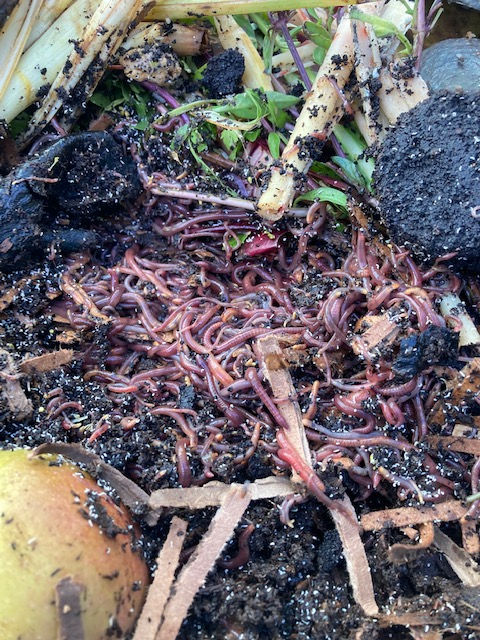The Red vs Blue Debate is Over: Why Indian Blue Worms Should Be Included In Your Compost Bin
- Clinton James
- Jun 4, 2024
- 2 min read
Red wigglers have long been the poster child for vermicomposting (they have done for worm composting what pandas have done for China.) But here at Worm Works, we've had a revelation: If you work with nature, a single breed of worms puts your bin and its productivity at a disadvantage.
If you had an outdoor bin this past winter and experienced temperatures as we did (remember that 3-day stretch of temps under ten degrees?), you may have come to a similar conclusion. Going into the winter season, we at Worm Works had multiple healthy bins of both Red Wigglers and Indian Blues. Now that we're safely on the other side of the burrrrr and assessing bin populations, this is what we're noticing:

Temperature Tolerant Troops: Worms can be picky about temperature. While red wigglers thrive in a narrower range, Indian Blues are a more resilient bunch. They handle a wider temperature spectrum, making them ideal for climates with fluctuating temperatures. This adaptability makes them a great choice for year-round composting outdoors (with proper bin insulation).
Composting Powerhouse: Indian Blues are waste-devouring machines. They can devour organic matter even faster than red wigglers, churning through kitchen scraps and turning them into nutrient-rich castings at an impressive rate. This means happier, healthier bins, and a quicker supply of that black gold for plants.
Breeding Eggstravaganza: Indian Blues are prolific reproducers, multiplying faster than their red counterparts. It's widely known that worm cocoons withstand even greater environmental extremes than the worms. So even if you we do experience a hit to our population, a new generation will hatch the moment conditions become favorable. This translates to a larger population, which means more waste gets processed and more castings get produced.
The Great Escape (Artist Formerly Known As): The Indian Blues have had a bad rep for escape artistry. You may have heard about worms' tendency to make a break from the bin during episodes of low atmospheric pressure. However, these occasional migrations are often a sign of unhappy worms. Proper bin management (moisture levels, ventilation, and food availability) goes a long way in keeping both Indian Blues and Red Wigglers content and comfortably munching away inside their composting castle.

Our New Strategy: Diversity. Don't get us wrong, red wigglers are fantastic composting companions. However, the new Worm Works Wisdom is to work with nature. A bin with only one species of composting worms is vulnerable to that species' weaknesses. To have variety allows the worm populations to ebb and flow as conditions change. This past winter was HARD on the Red Wigglers. The Indian Blues took advantage of the lack of competition and thrived!
It's time to Party Mix. Previously, Worm Works sold either straight Red Wigglers OR a 'Party Mix' which included both Reds and Blues. We are now only selling a composting worm mix-The Party Mix-because that has worked fantastically for us. A tag team approach in your bin will be more effective with more resilient populations than with just a single species.
We're excited about this change. Want to learn more? Do a quick web search for "Indian Blue worms vs red wigglers" for a deeper dive into the fascinating world of composting worms!




Comentários